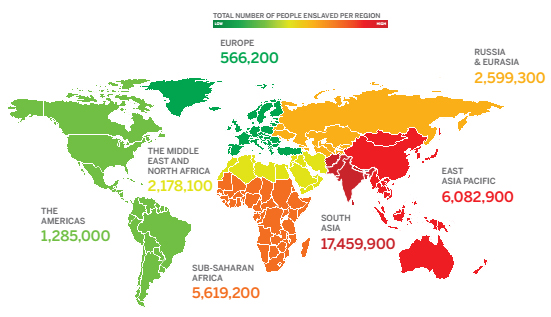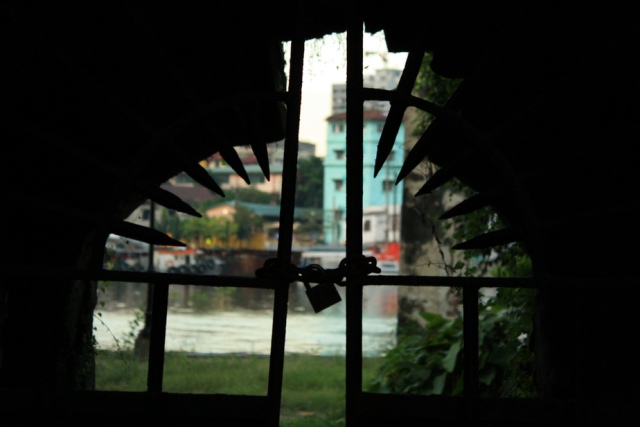MANILA, Philippines — The Philippines has the 19th largest estimated population enslaved through forced prostitution, forced labor, involuntary servitude, child soldiery or removal of organs.
The 2014 Global Slavery Index by the Walk Free Foundation estimates that 261,200 Filipinos are subjected to a form of modern slavery.
The study released on Tuesday indicates that 0.26 percent of the country's population of 98 million also makes it 103rd in the index in terms of prevalence of modern slavery.
The Philippines is also 19th in Asia Pacific in terms of vulnerability of its population to be trapped in slavery.
"Most countries in the Asia Pacific region exhibit a range of preconditions to modern slavery, including weak rule of law, corruption, high levels of poverty, and crippling unemployment," the study noted.

Total number of enslaved people per region. 2014 Global Slavery Index/Walk Free Foundation
Andrew Forrest, chairman and founder of Walk Free Foundation, commented that while modern slavery exists in every country, the public and the private sectors contribute to the circumstances that place vulnerable persons in various forms of servitude, trafficking and the like.
"We are all responsible for the most appalling situations where modern slavery exists and the desperate misery it brings upon our fellow human beings," Forrest said in a statement.
Mo Ibrahim, another supporter of the study, said that modern slavery is a "hidden crime and notoriously difficult to measure," but governments have to use available data to enhance measures against it.
In the study, the Philippines received a BB rating for ranking 29th in terms of government response, particularly for having "criminal justice responses in place."
"When national economist capacity is taken into account, countries that are making comparatively strong efforts with limited resources include Georgia, the Philippines and Jamaica," researchers said.
RELATED: Gov't wins 1st conviction for attempted human trafficking
Government response was measured based on identified survivors, justice mechanisms, accountability mechanisms, attitudes, social systems and institutions and whether procurement of businesses and governments sourcing goods and services that use modern slavery is stopped.
About 35.8 million people are living in modern slavery globally, 61 percent of which are in India, China, Pakistan, Uzbekistan and Russia, the study said.


